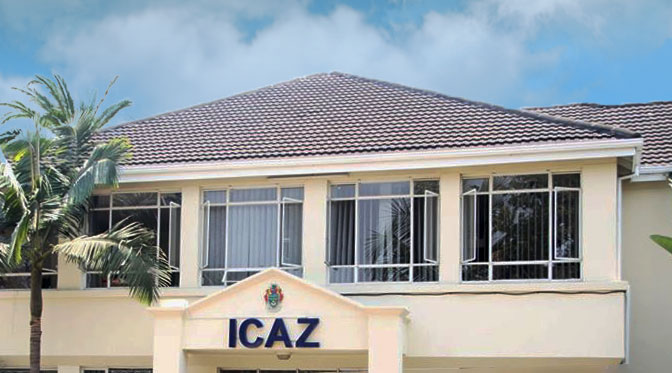Adopt AI for digital economic growth
INFORMATION Communication Technology, Postal and Courier Services Minister Tatenda Mavetera has called on Zimbabweans to embrace the transformative potential of Artificial Intelligence (AI) and position the country as a leader in Africa’s digital economy.
Addressing delegates at the second Digital Economic Conference in Bulawayo on Wednesday, Minister Mavetera highlighted the huge economic opportunities presented by AI, noting that global projections estimate AI could add US$15,7 trillion to the world economy by 2030.
“This year’s theme, ‘Crafting Connected Economic Futures,’ resonates deeply with the vision we hold for our nation and with the global community.
“AI is not just a technological advancement, but an engine that will power Zimbabwe’s digital economy, driving efficiency, innovation and inclusive growth,” she said.
Minister Mavetera emphasised the rapid pace of technological change, stressing that the convergence of technology, data and connectivity is reshaping industries and redefining economic structures.
“Today, we are not merely participants in a digital revolution; we are architects of a connected future. Digital synergy is the collaborative effect that emerges when various digital technologies and platforms work together harmoniously,” she said.
“It is about breaking down silos and fostering an ecosystem where innovation thrives. As we embrace this synergy, we unlock new opportunities for growth, efficiency, and inclusivity.”
Minister Mavetera highlighted the importance of harnessing the full potential of the technology, saying Zimbabwe is uniquely positioned to play a pivotal role in digital transformation.
She said AI has the potential to streamline processes, enhance productivity and ultimately uplift communities.
Minister Mavetera illustrated AI’s practical benefits with examples from agriculture, finance, and healthcare. She noted that AI-powered drones can monitor crop health, while predictive analytics can help farmers anticipate weather patterns and blockchain technology can ensure fair pricing.
Drawing inspiration from India, where AI initiatives in agriculture boosted productivity by 25 percent, she suggested Zimbabwe could achieve similar gains.
“The AI for agriculture initiative in India boosted productivity by 25 percent, and Zimbabwe can replicate this. With 85 percent of Zimbabweans now using mobile money, AI can enhance fraud detection, credit scoring, and personalised banking. AI reduces financial fraud by 40 percent,” said Minister Mavetera.
Healthcare is another sector poised for transformation. With only 1,6 doctors per 10 000 people in Zimbabwe, Minister Mavetera said AI-powered telemedicine and diagnostic tools could help bridge the gap.
“In Rwanda, AI reduced maternal mortality by 30 percent, we can achieve similar results. AI-driven mineral exploration can increase efficiency by 35 percent. Zimbabwe’s lithium, platinum, and gold sectors stand to benefit immensely,” she said.
Minister Mavetera said AI can also enhance education with e-learning platforms as digital resources are bridging gaps in accessing quality education thereby empowering learners from all walks of life to achieve their full potential.
She said her ministry has been on the ground, setting up ICT laboratories in schools and providing connectivity to ensure no child is left behind in this digital transformation journey.
“Digital synergy is about creating interconnected systems that enhance productivity, foster collaboration and drive economic growth. However, to truly realise this synergy, we must ensure that everyone has a seat at the table.
“This is where equity, privacy and digital inclusion come into play,” said Minister Mavetera.
She said every citizen, regardless of socioeconomic status, should be empowered to participate in the digital economy.
Minister Mavetera also stressed the importance of robust privacy regulations to safeguard citizens’ information.
“Trust is the foundation of any digital ecosystem, and we must work diligently to earn and maintain that trust. Inclusion is not merely an ideal, but a necessity. We must create an environment where all individuals, especially women, youth, and people with disabilities, can access digital tools and resources,” she said.
Minister Mavetera reaffirmed the Government’s commitment to the Digital Economy Pillar of the National Development Strategy 1 (NDS1), which outlines a comprehensive agenda for Zimbabwe’s digital future. -chroncile









